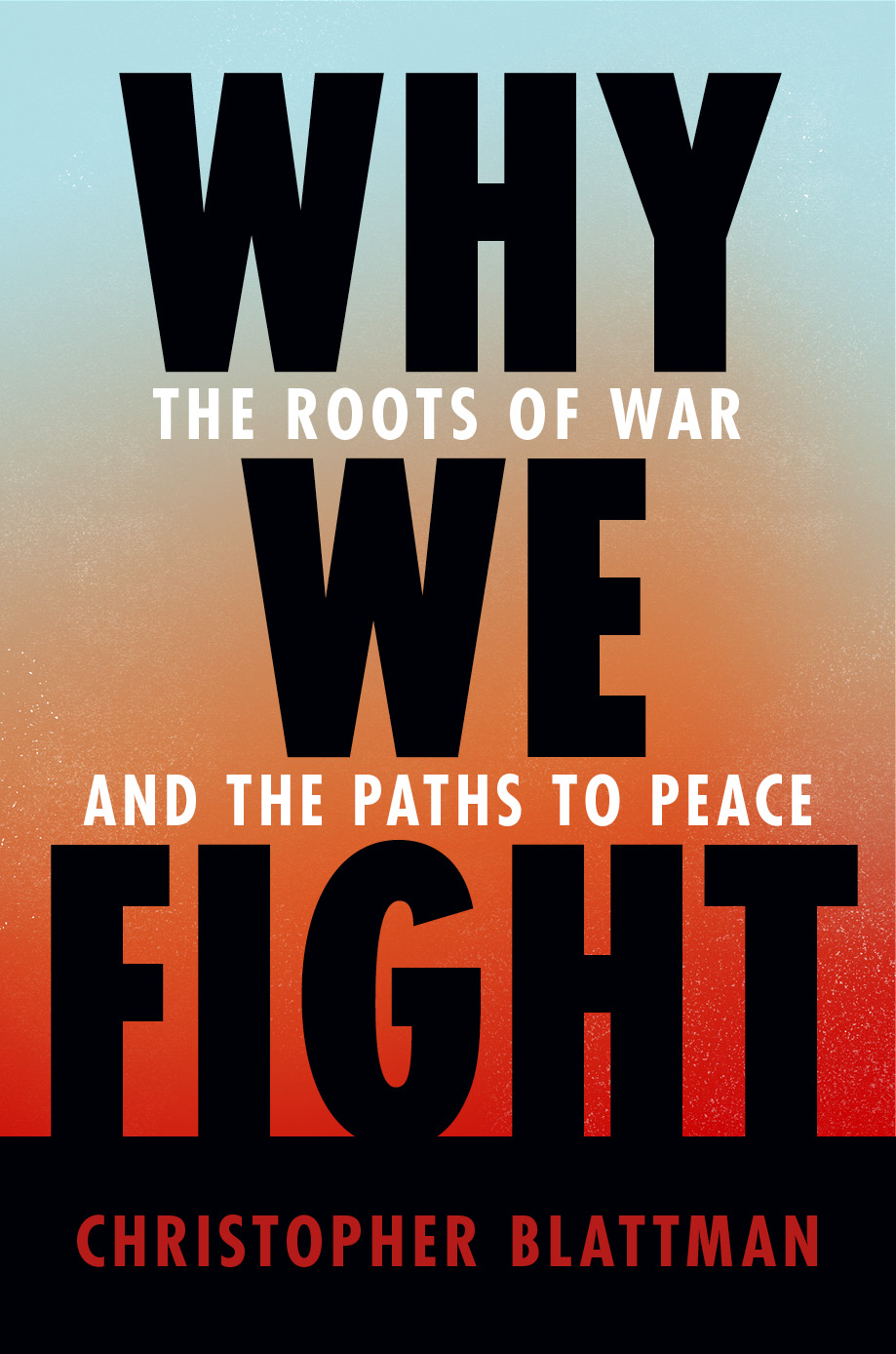Through Amazon and other sellers, plus a UK release 10 days earlier. Decades of social science completely changed how I think about conflict. But no one seemed to be talking about these ideas. How do you fix a problem if you don’t understand it? That’s why I wrote this book: to boil down for a general audience the big ideas from political science, economics, psychology, history, and a dozen other fields. A lot of people think war is easy and peace is hard. It’s actually the opposite: war is hard and peace is easier than you think. You look around the world or even your city and see so much misery and violence, it’s easy to forget that most rivals don’t fight. Most countries, political factions, ethnic groups, religious sects, and even criminal gangs compete in other ways, because
Topics:
Chris Blattman considers the following as important: Books, conflict, peace and conflict, Why We Fight
This could be interesting, too:
Robert Skidelsky writes A Tale of Frankenstein – Lecture at Bard College
Robert Skidelsky writes In Memory of David P. Calleo – Bologna Conference
Robert Skidelsky writes Keen On Podcast: Episode 2229: Robert Skidelsky worries about the Human Condition in the Age of Artificial Intelligence
Michael Hudson writes Temples of Enterprise
Through Amazon and other sellers, plus a UK release 10 days earlier.
Decades of social science completely changed how I think about conflict. But no one seemed to be talking about these ideas. How do you fix a problem if you don’t understand it? That’s why I wrote this book: to boil down for a general audience the big ideas from political science, economics, psychology, history, and a dozen other fields.
A lot of people think war is easy and peace is hard. It’s actually the opposite: war is hard and peace is easier than you think. You look around the world or even your city and see so much misery and violence, it’s easy to forget that most rivals don’t fight. Most countries, political factions, ethnic groups, religious sects, and even criminal gangs compete in other ways, because fighting is ruinous. The horrors of war are a powerful incentive for peace. We should never forget this natural state of humankind.
Of course, some groups do go to war, and that’s generally because something overwhelmed their incentives to find some kind of deal. You might think this happens in a million ways, and to some extent that’s true. There’s a war for every reason and a reason for every war. But a lot of these reasons rhyme. In the end, there’s really just five logical ways that compromise breaks down. Every explanation you’ve heard fits into one of these logics. And every path out of violence requires turns these logics around, and gets rivals back to loathing one another in peace.

